Advantages and disadvantages to living in Bratislava, Slovakia
Hello everyone! Today I am going to continue with the theme from yesterday, which was Bratislava. Yesterday I posted an entry that was divided into two parts with lots of information relating to tourism. You can read part 1 and part 2 of the post.
Today I will change the subject. Specifically, I will talk to you about the advantages and disadvantages of living in Bratislava, as you will have realised from the title. In general, Slovakia is a country where you can live well, just as in any country in Europe. I arrived here 10 months ago, so I am able to tell you about my perceptions of the city, the society, the disadvantages but also the good aspects to living here. Let's begin with the positive part, the advantages.
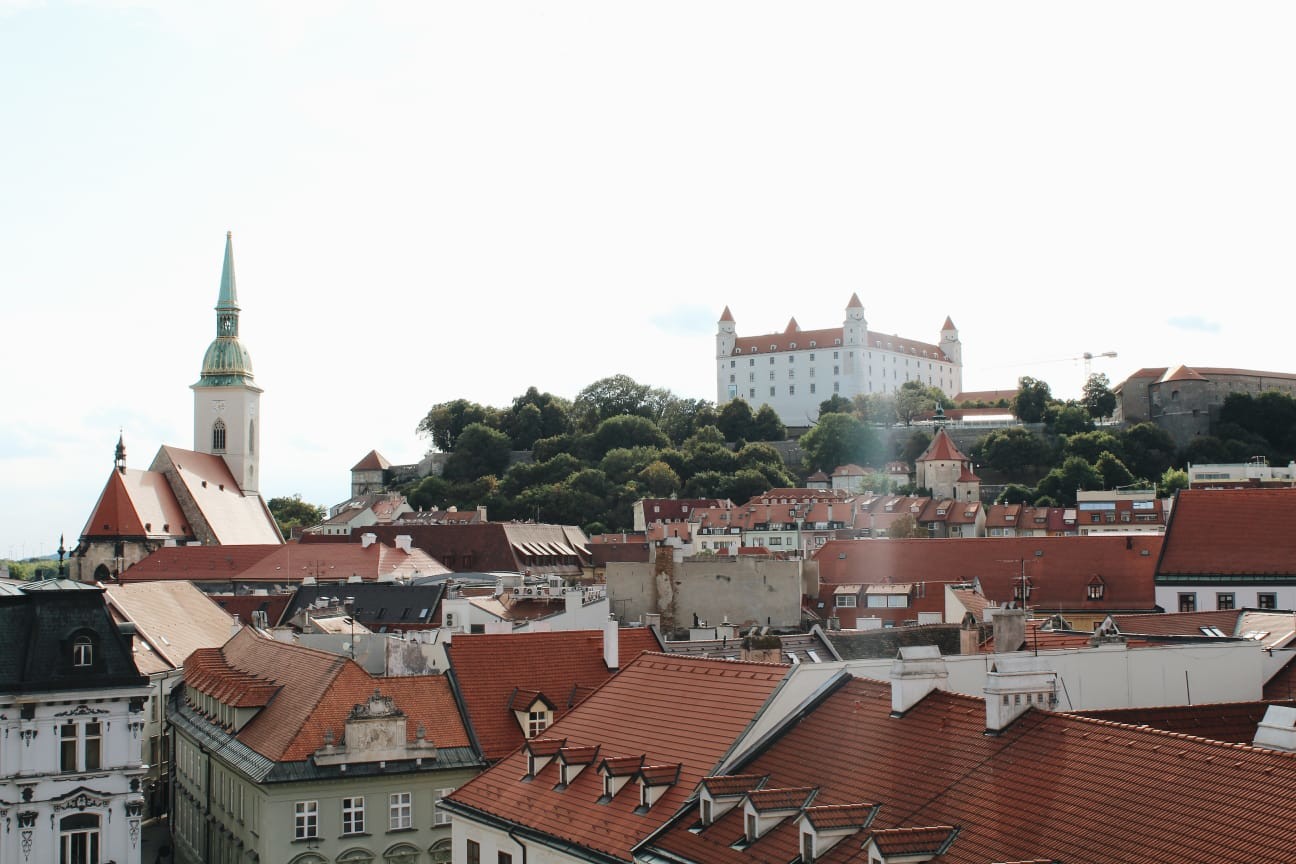
Advantages
1. Its strategic location.
The number one advantage of living in Bratislava is, without doubt, its strategic position. If you are a person that likes to travel, then you will have great European capitals close by, such as Vienna (an hour away by bus), Budapest (three hours away by train), Prague (four hours away by train) or Brno (not even an hour away from Bratislava). They are really close and you can make perfect weekend plans to visit each one of them. Furthermore, the transport to get from Bratislava to any of the mentioned cities is quite cheap and there are lots of offers to choose from.
2. Bratislava has the best of both worlds.
Let me explain. It has basically everything you can find in a capital city: different events, interesting concerts, a party zone, nightlife, language schools, shopping centres and, in general, a substantial amount of different kinds of activity on offer. On the other hand, it isn't as chaotic as other big cities. 420, 000 people live here, so, in general, it is quite a calm city. And if for some reason you cannot find what you're looking for, there is always Vienna an hour's bus journey away, and there you really have everything.
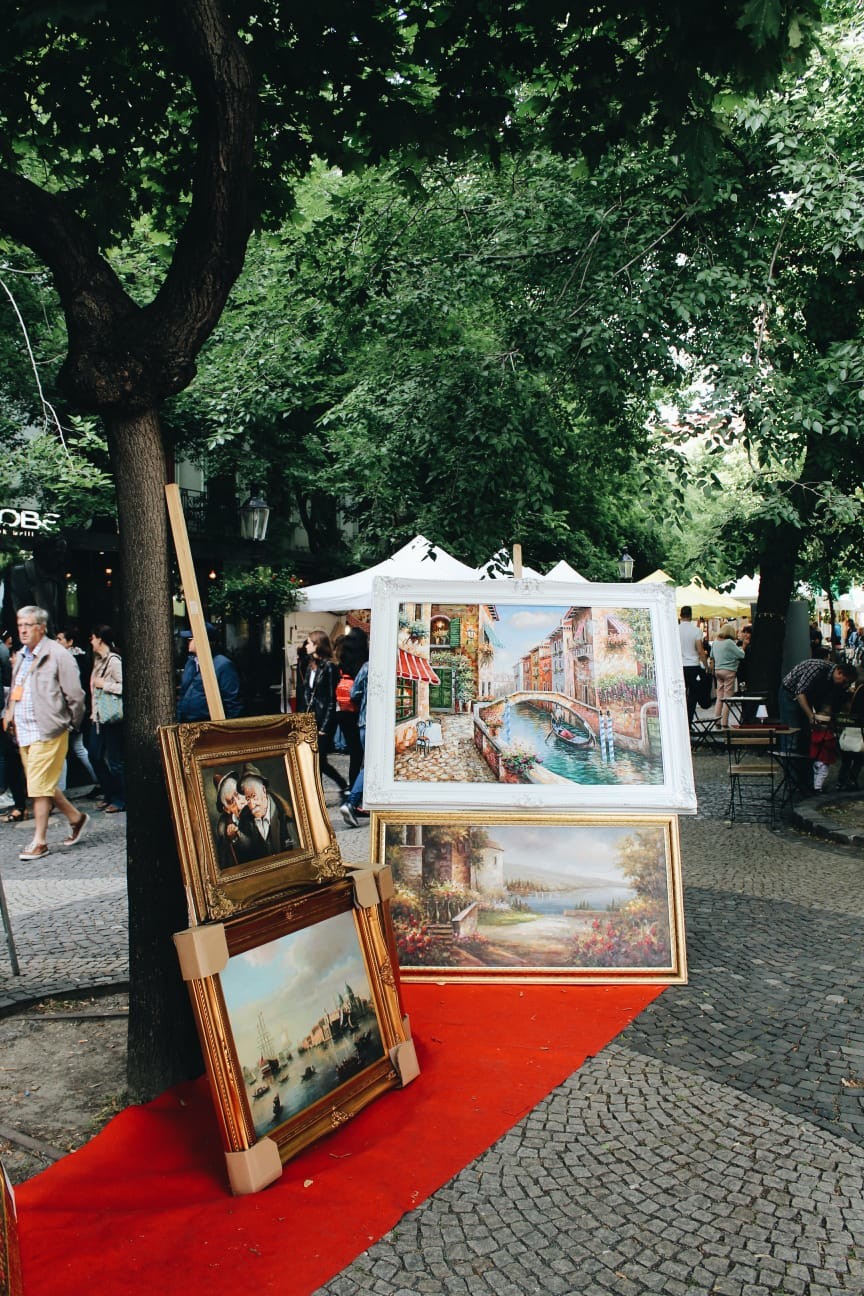
3. It is quite easy to find a job.
If you know how to speak Slovak then you won't have a single problem in finding something apt for you. If you don't know Slovak but you know English (another language is always a plus), try your luck with big companies. In Bratislava there are many multinational companies such as IBM, Johnson Controls, Dell or Amazon where there are always different job offers. The unemployment rate in Bratislava is very low, but in other cities in Slovakia the percentage is much higher and salaries are generally much lower.
4. Data is a very cheap service and is really fast.
I pay €20 per month for a tariff with 400 megabytes per month. If you're going to live in Bratislava, I recommend UPC.
5. Heating is also cheap.
In general, the cold never gets inside of any establishment here during winter. You are always at ease with with the heating on. It is generally the same in every house as well.
6. Drinking is also cheap.
Drinking is much cheaper than eating, I have to say, if you compare it to Spain (or to England). For example, you can find half a litre of beer in some bars for €1. 50. In Spain or England, some establishments will charge you almost double.
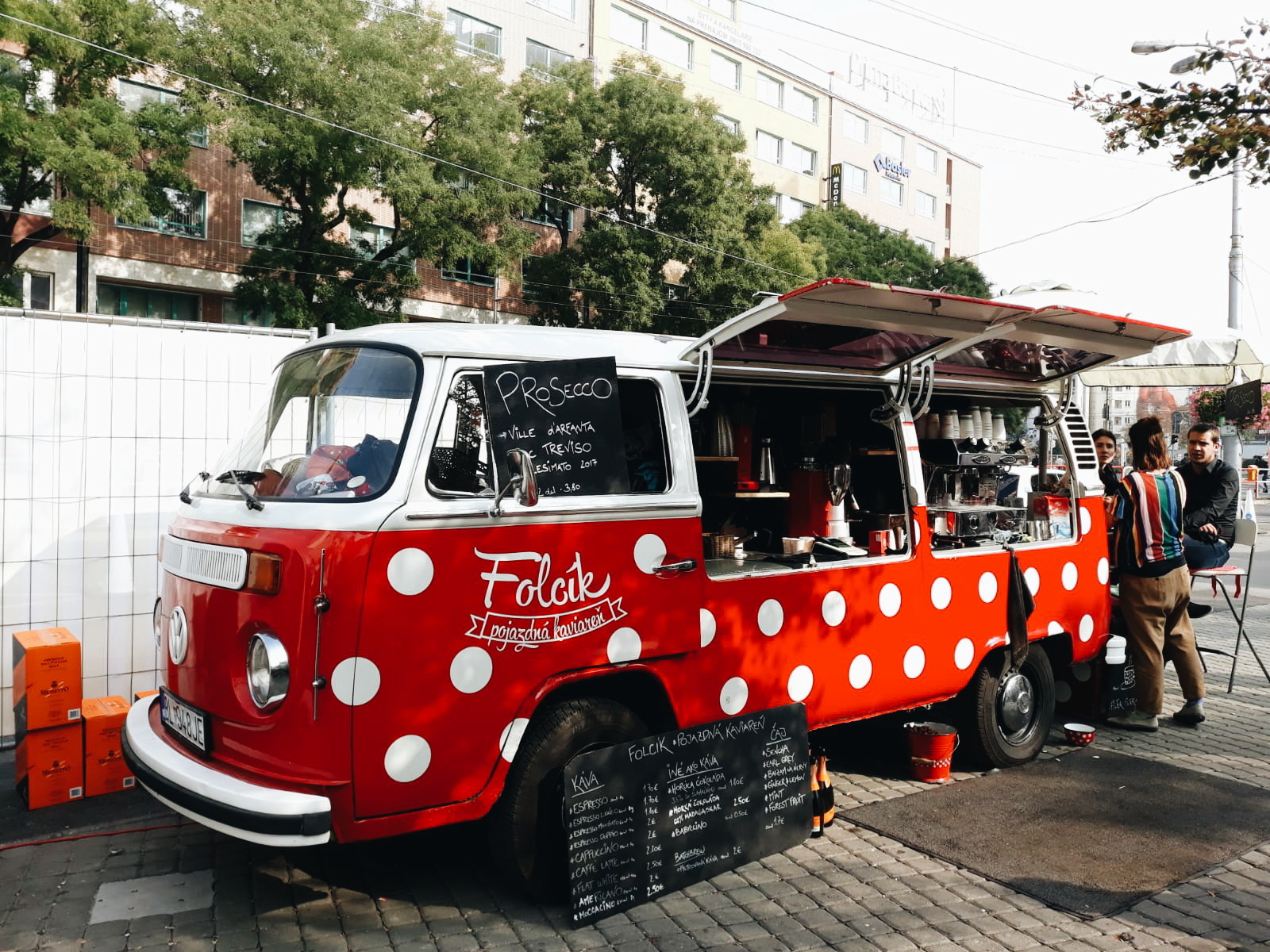
7. The official currency is the euro.
In regards to bordering countries to Slovakia, I have to say that it is an advantage that they use the euro here. In the Czech Republic they use the Czech koruna, in Hungary they use the Hungarian forint, in Poland they use the zloty and in Ukraine they use the grivna. For us Spanish people, it is a benefit because we also use the euro in our country and we don't need to change currency. This advantage is especially useful when we travel. It really simplifies life because we wouldn't need to change to foreign currency (English people would have to change their money to foreign currency).
8. Bratislava also has a lot of nature.
Outside of the urban area, half an hour away from the centre by tram, the nature that the capital offers is incredible, both in summer and in winter. I will leave you some photos here from a walk that I went on at the beginning of March when it was still snowing. If you are more ambitious in terms or nature and want to see more impressive scenery, you can go and hike in the Tatra mountain range, low and high, where you can find the tallest mountains in the country.
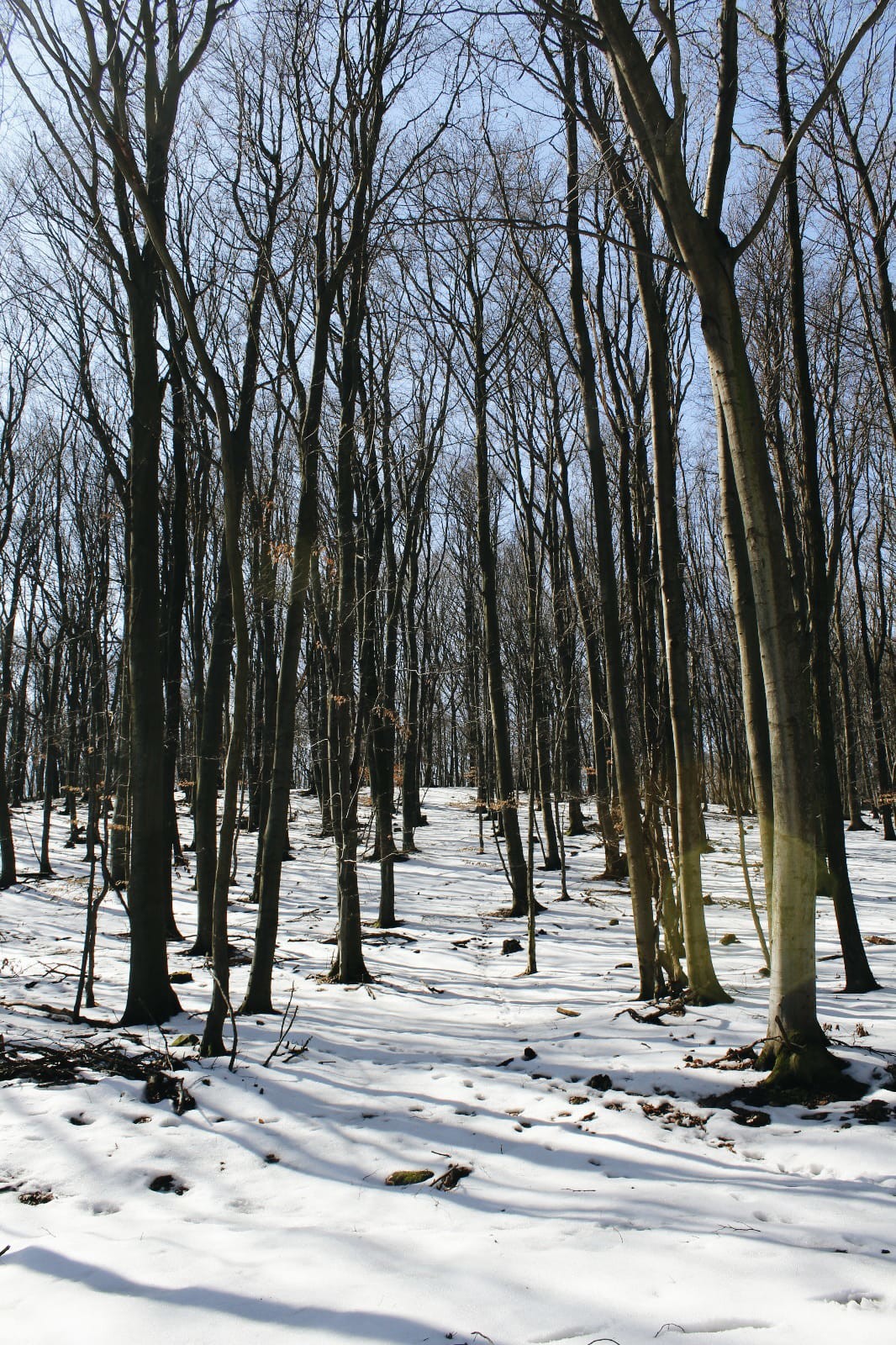
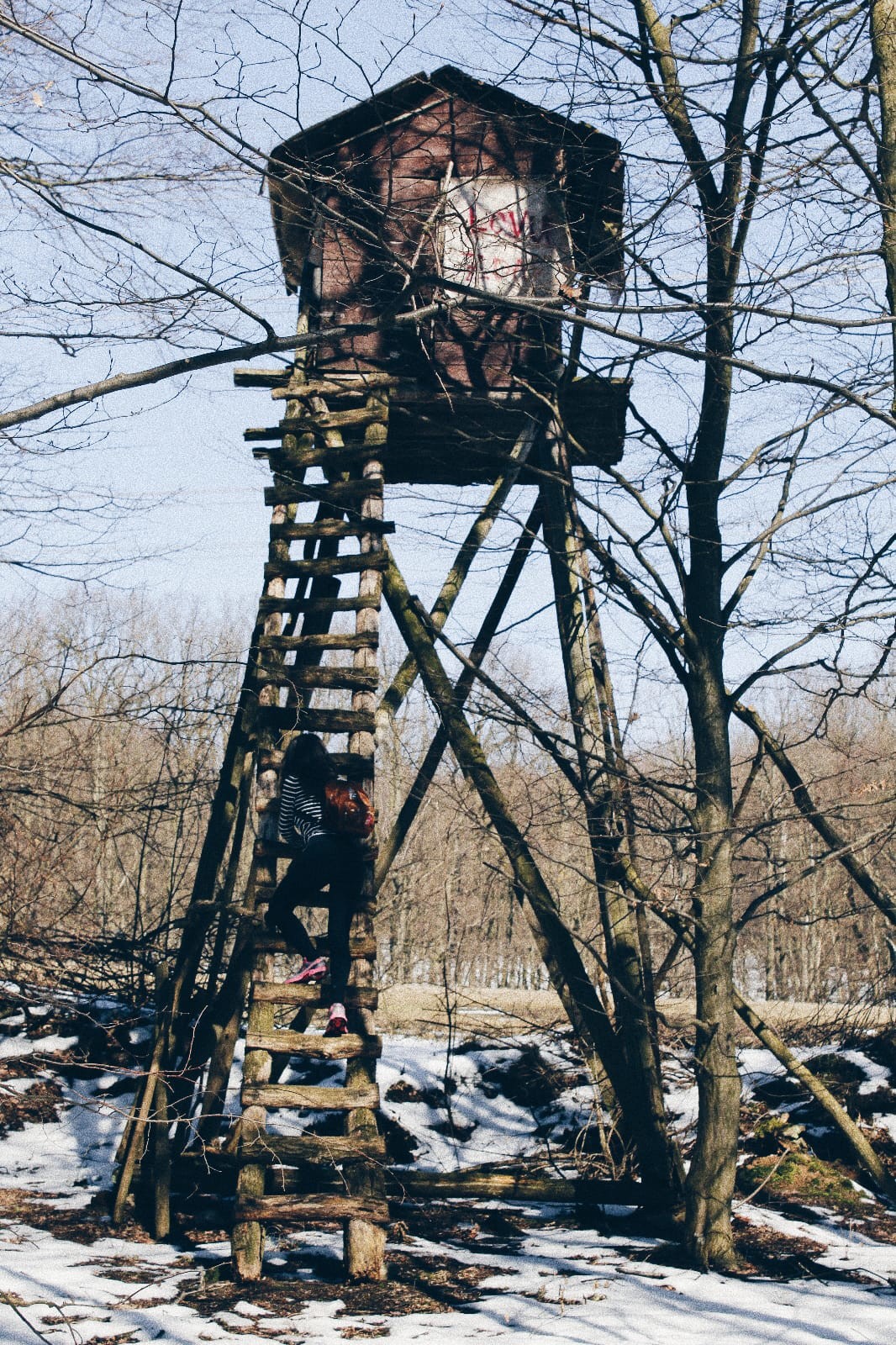
9. Trains are free for students and retired people.
If you are a student or you are retired, trains across the whole of Slovakia are free. This means that, for example, if you wanted to go to Budapest, you would only have to pay for the part of the journey that begins at the border of Slovakia and ends at Budapest.
Now that I have mentioned all of the advantages that I believe this city has, I will now tell you the disadvantages.
Disadvantages
1. It is far from the sea.
For me, the first and most important disadvantage is that it isn't by the sea. And not only is it not by the sea, but the closest coast is a six hour drive away. For those that have always lived with the sea nearby, this is a great disadvantage. Sometimes we tried to quench our thirst for water with the lakes that are in the outskirts, but anyone who knows how to appreciate a dip in the sea will know that this is not enough.
2. The language.
For Spanish (and English) people, Slovak can be a difficult language to learn because its grammar, phonetics and vocabulary is very different to any language that we knew before. Normally, in the YouTube videos that are entitles "the 10 most difficult languages in the world", Slovak appears in some of these posts. Even so, learning the basics is always better than having to constantly use English and to submerge yourself a little more into the culture of the country.
3. Accommodation.
Finding a decent flat in the centre in regards to quality and price is really difficult. There is a lot of demand and little supply. The landlords know this and many of them take advantage of the situation and put their prices up to reach sky-high. The worst thing about this is that if you want to live in the outskirts, rent will continue to be expensive and the conditions can be quite bad. I know people that have spent nearly three months trying to find a flat in good condition.
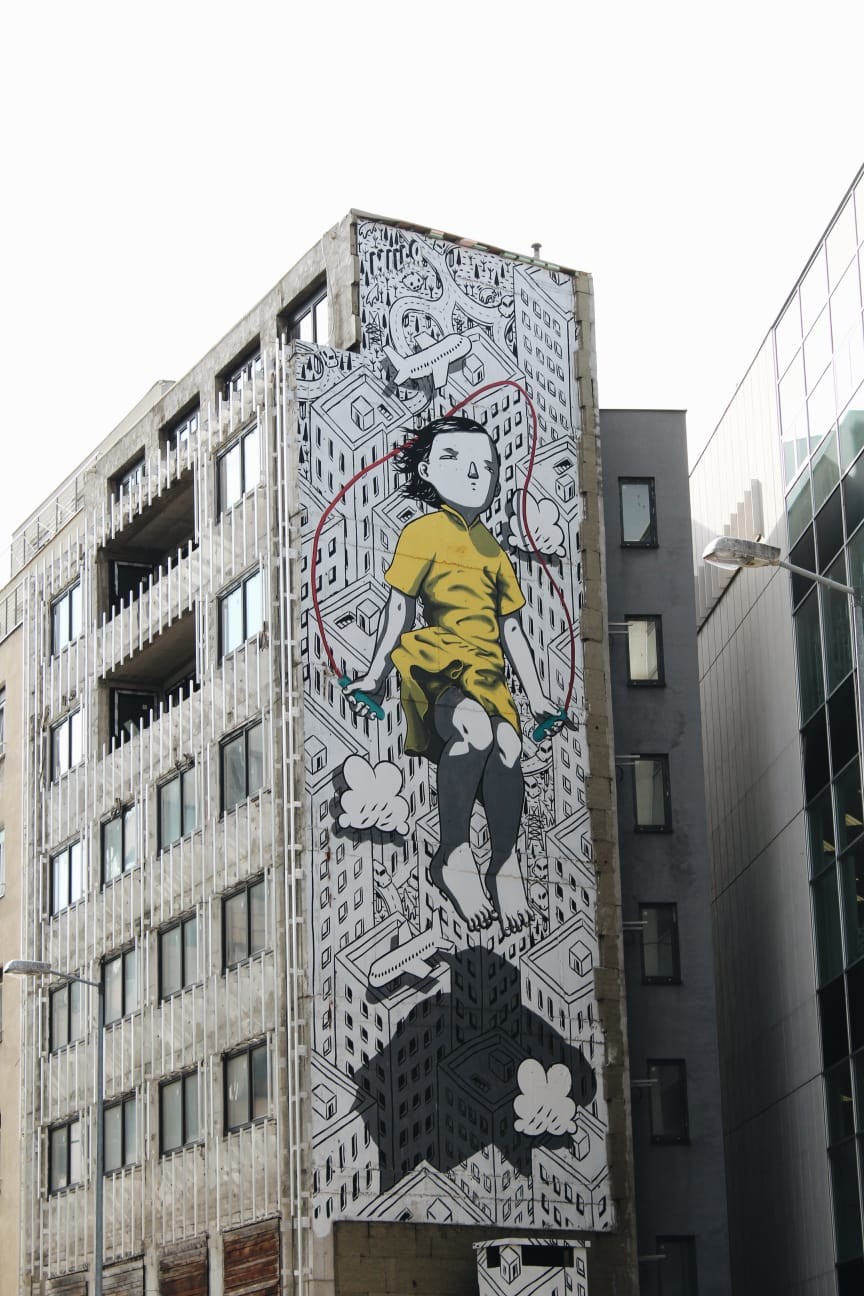
4. Poor food quality.
The quality of food is not as good as in other countries. Known as the "food apartheid" is a problem that not only Slovakia suffers, but also Hungary, Poland and the Czech Republic. The quality of food is very inferior if you compare it to that in countries such as Austria or Germany. The same product can vary in how it's made from one country to another and therefore, also in its nutritional value. So, those that are sold to this part of Europe are, as well as worse, more expensive. Therefore, it is relatively normal practice to go by car to buy food from Austria as the closest supermarket could be some 20 minutes from Bratislava. Many citizens buy a huge amount and then return after a while. Another option is to buy from bio shops or from small businesses, but these will always be more expensive. The governments of these countries are fighting against this problem, analysing the products to confirm that they have the same components and the same quality. Otherwise, these multinational companies could receive a fine.
5. The weather.
I often say that Bratislava only has two seasons: summer and winter. Obviously it is not as extreme as this, but in winter the temperatures can reach 15 degrees below zero and in summer they can reach 40 degrees Celsius, which can make it difficult to sleep. Sometimes it seems as though there is no middle ground. Slovakia is a country that, once the summer ends, the cold arrives with force.
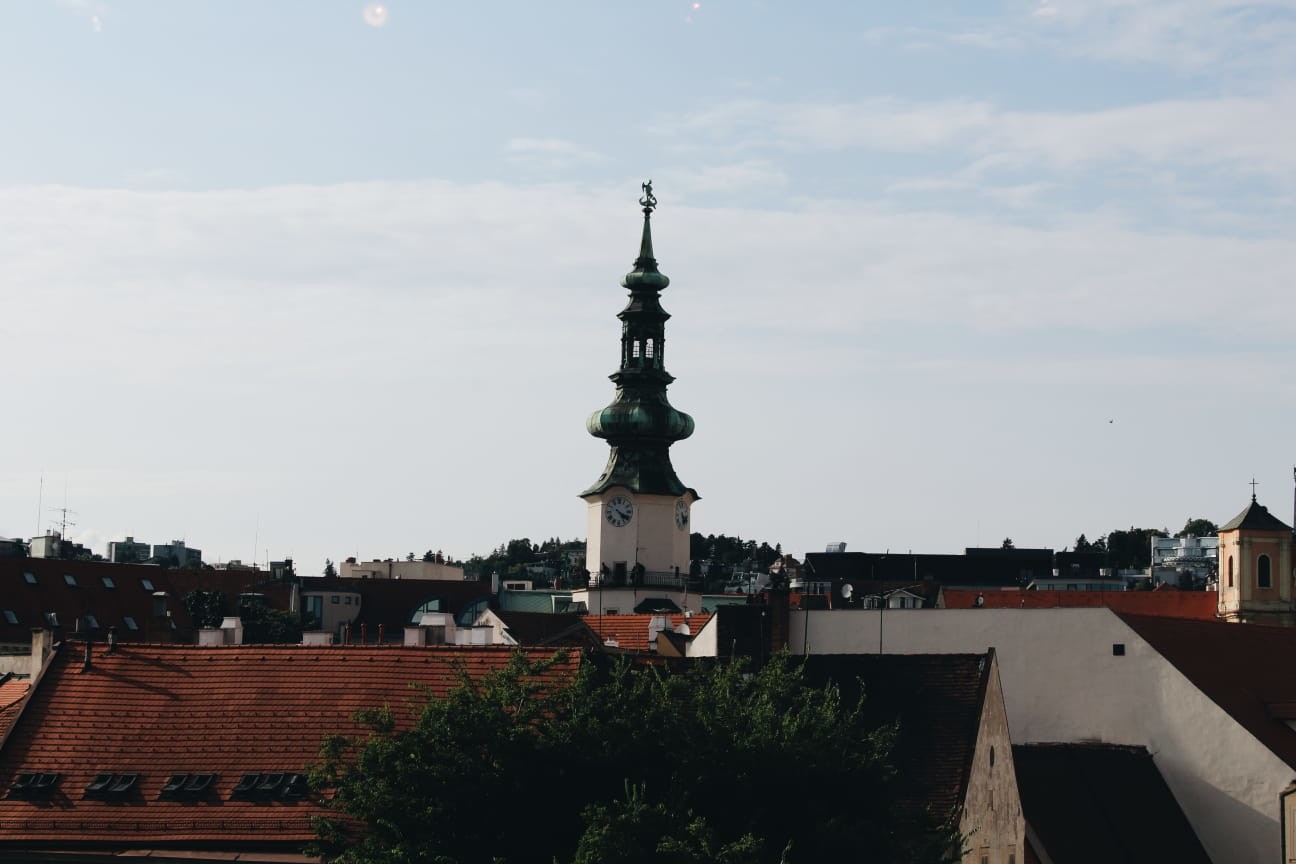
6. Bad driving.
In general, the driving in this country is bad. They drive very fast and don't respect pedestrians. It's very strange for the cars to stop when you are waiting at a zebra crossing. In fact, when you return to Spain or England and somebody does stop, you'll be nothing other than surprised.
7. Customer service tends to not be very good.
Good manners and good treatment in the service sector shines in their absence, in general. There are always exceptions, of course. If you don't know how to speak Slovak, you will often end up lost. Not because they don't know how to speak English, but because they often don't want to, or they do so whilst looking at you and pulling a face. Also, if you are foreign then they will often be lazy when it comes to attending to you because they need to use a language that isn't their own. We have endless anecdotes when it comes to talking about this issue. But it would seem that bad manners are not only used for foreigners, because some Slovakians themselves admit that the treatment of customers is not as good, even for them.
8. In winter, the city is a bit grey.
The sun sets early, the streets are empty and despite being a capital city, it would seem as though it were a ghost city because there is such little movement. For Slovak people, six thirty in the evening is already late.
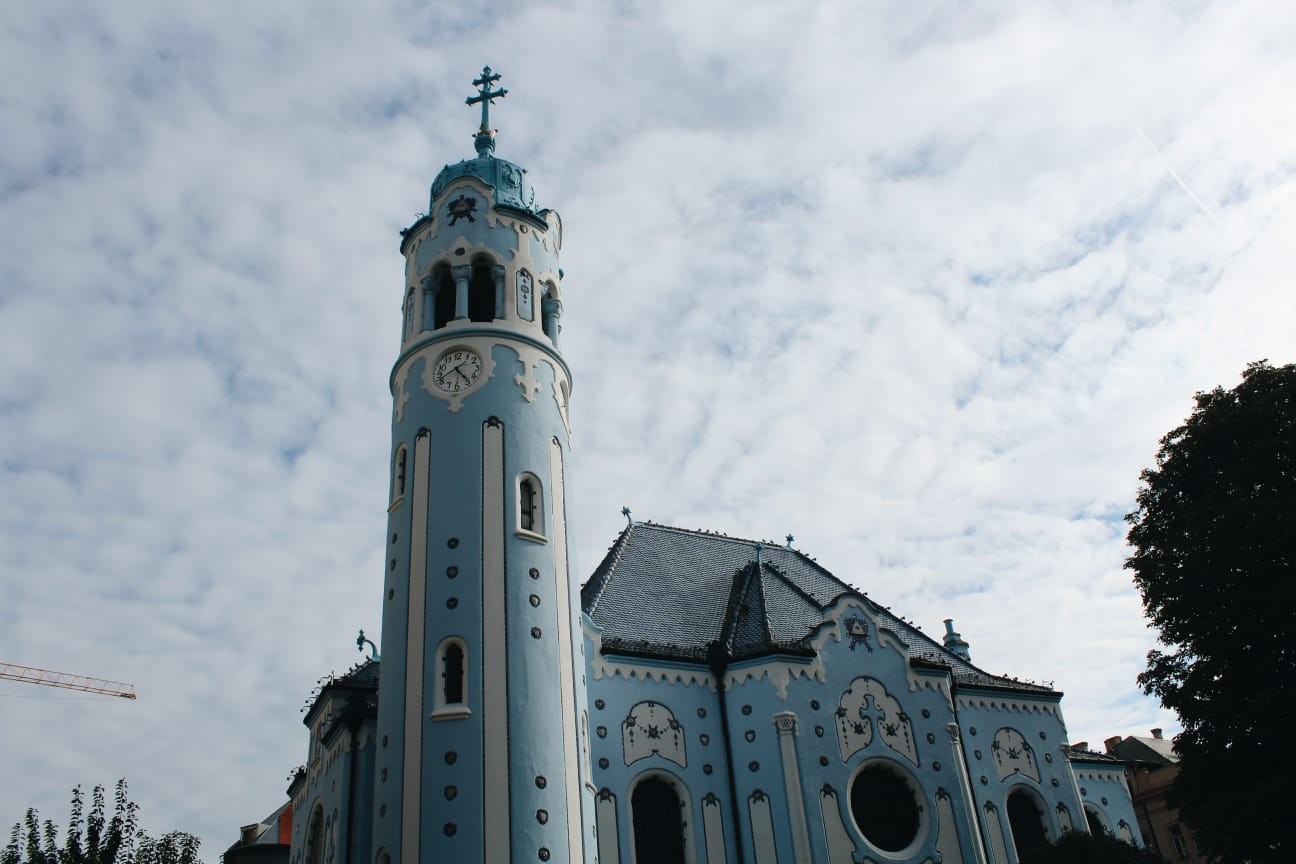
9. The question of schedules.
Normally, if you come from a country such as Spain, Greece or Italy, you have to change your eating schedule and adapt to new customs in Slovakia (also applicable to the rest of Europe, why deny it). If you want to eat dinner, the best time to go would be at eight o'clock in the evening, because by ten o'clock the kitchens are already closed. In regards to shopping, many shops shut around six o'clock in the evening, so you have to run all of your errands in the morning.
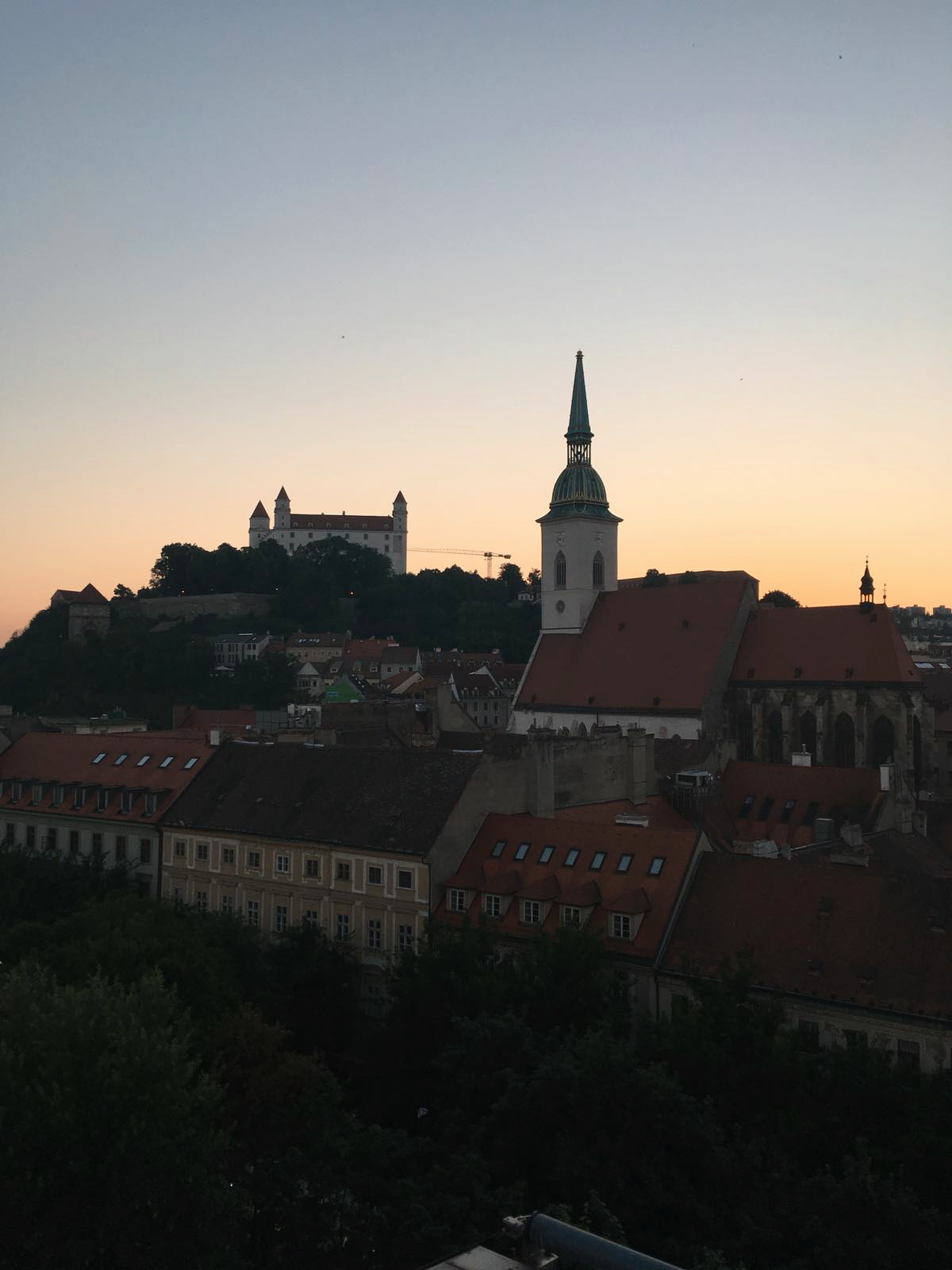
Now you can weigh up everything and compare it to your lifestyle and decide whether this is a good place for you to live or not. For me, it is, for a good semester at least. And that is everything! You will slowly begin to see more entries with content relating to travelling, activities and free time. I hope that you have liked this post, and I shall see you soon. Thank you for reading.
Photo gallery
Content available in other languages
Want to have your own Erasmus blog?
If you are experiencing living abroad, you're an avid traveller or want to promote the city where you live... create your own blog and share your adventures!
I want to create my Erasmus blog! →
























Comments (1 comments)
Just because it has 437k written on wikikpedia, it's doesn't give you the right info. The population is just about 670-680 000 or more, those people are just not registred, because they want the money to be sent to the little tiny village of eastern or central part of the country, which they are probbably from. The official numbers aren't everything.